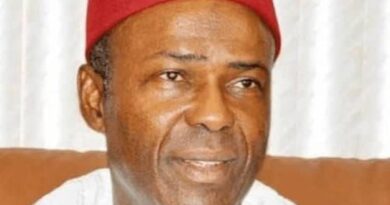CBN puts the nation’s external reserves at $34bn
The Deputy Governor of Central Bank of Nigeria (CBN) in charge of Financial System Stability, Joseph Nnanna, has said that Nigeria’s external reserves have hit $34 billion from $33.6 billion attained on October 25. It has been appreciating very fast after hitting $32 billion on September 18.
Nnanna, who disclosed the latest figure in Lagos during the weekend while fielding questions from journalists at a forum organised by the Chartered Institute of Bankers of Nigeria (CIBN), said the exchange rate stability achieved so far by the apex bank had come to stay.
He expressed confidence that the usual end-of-the-year rush would not push up the naira-dollar exchange rate contrary to some people’s expectations.
When he was asked if the exchange rate would go up as the end of the year was approaching, Nnanna said, “No, the rate will not go up, take it from me. We have achieved stability and the stability is here to stay.
According to him, “The sustainability is already evident, the reserves are growing. As I speak, the reserves are $34bn. When we had volatility, the reserves were as low as $20bn. But let me say one thing: Nigeria can make do with a reserve level of $20bn but it is the press who gives the impression that if the reserves fall below $30bn, then there is a problem.
“No, there is no problem. All we need to manage the economy and manage it properly is reserves that can cover at least three months of import. And in fact, as it is, $10bn or $12bn can give us reserve coverage of four months.”
He further said the Investors and Exporters foreign exchange window had performed beyond the bank’s expectations, adding that forex inflows in the past few months were huge.
“Our exchange rate is convergent; we are getting southward. In the IMF, they talk about the need to have one rate. The one rate can happen organically or inorganically. For us at the CBN, we believe that organic convergence is the way to go. Inorganic convergence, which is forced, will always produce an arbitrage and that we don’t want.”




